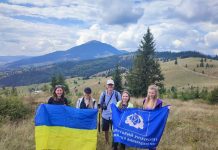An online exhibition and hands-on workshop, led by a Lancaster University historian, will mark the 250th anniversary of Benjamin Franklin’s visit to the English Lake District and a ground-breaking experiment.
The American scientist, printer and statesman made a noteworthy trip to the region in 1772, and, say experts, he was wowed by the experience.
Both activities are part of Being Human 2022, the UK’s national festival of the humanities, the study of human society and culture.
The events were selected by the organisers, the School of Advanced Study, University of London, and festival partners the Arts and Humanities Research Council (AHRC) and the British Academy (BA).
“Being a man of irrepressible curiosity, Franklin was hardly an idle tourist,” says Dr Chris Donaldson, who has put together the project.
“He eagerly explored the wonders of the region from top to bottom with two of the other eminent scientists of his era, Sir John Pringle and Dr William Brownrigg.”
To commemorate the anniversary of Franklin’s visit, Dr Donaldson and a team of Lancaster University researchers are working with the Benjamin Franklin House, Keswick Museum, The Beacon Museum (Whitehaven) and The Royal Society to deliver the online exhibition and hands-on workshop which will shine a light on an influential experiment Franklin conducted while in the Lake District.
“The experiment involved dumping oil into Derwent Water,” said Dr Donaldson. “Bizarre as it might sound, Franklin’s oil experiment made waves during his lifetime, and it’s still relevant today, not least given heightened concern about the pollution of the Lake District’s lakes and waterways.”
The exhibition will launch at the start of the Being Human Festival, on 10 November 2022, and the workshop will take place at Keswick Museum, in the heart of the Lake District, on 19 November 2022.
The workshop will run throughout the day, and it will include hands-on activities suited to family audiences of all ages.
Participants will learn about some of the breakthrough experiments Franklin and his fellow scientists conducted two and a half centuries ago. They will also explore why oil and water interact in the way that they do and discover how to grow salt crystals.







